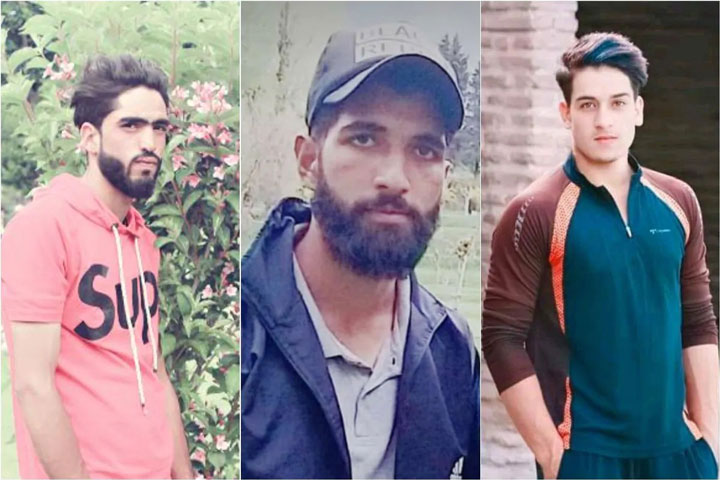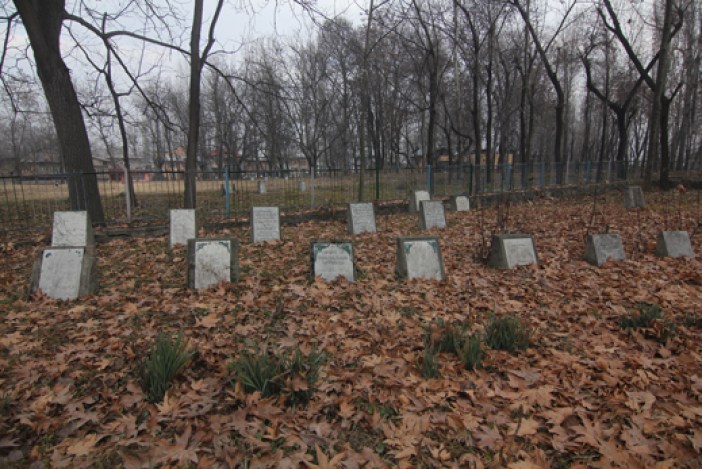A Grave Shock in Kashmir

Zubair Chisti is a Srinagar-based freelancer who writes about politics…
Kashmir’s ‘stranger than fiction’ facts resurfaced when a cop tasked to intern insurgents in ‘godforsaken’ land received his sibling’s dead body at the fag-end of the plagued year. But then, what happened at Sonamarg’s sprawling conflict cemetery has been happening in the valley since the 1990s now.
The news came when he was on his routine police call. The roaring guns after an overnight lull on Srinagar-Muzaffarabad highway at Lawaypora had finally fallen silent. And soon a battery of counterinsurgents—dressed in black and olive-green fatigues—would retrieve three young dead Kashmiris: naked and blood-smeared.
Once the oiled intelligence grid cross-checked the identities with the three families of south Kashmir—whose slain sons had barely left home some 15 hours before—the cop called his home in Turkwangam in south Kashmir’s Shopian. In a broken voice, he conveyed the news: “Zubair has been martyred in the Srinagar gunfight.”
Later, the cop sibling would do his usual: dig another grave in Kashmir’s yet another conflict cemetery.
Ever since police started denying bodies of local insurgents to their families in the garb of maintaining a regimental Covid protocol, the cop had buried many young armed Kashmiris in Sonamarg’s government-designated graveyard.
But on the night of December 30, the grief was personal, so was the grave for the cop gravedigger. With the wailing mother around, he lowered his sibling into his cold grave, and filled it with soil and snow amid the darkness.
Support Our Journalism
You are reading this because you value quality and serious journalism.
But, serious journalism needs serious support. We need readers like you to support us and pay for making quality and independent journalism more vibrant.

“What happened at Sonamarg is not anything new,” says Mushtaq Bhat, a Batamaloo neighbour of the legendary Kabir Chacha. “We have been living with these grave shocks for the last thirty years now.”
In one rainy day in the nineties, Bhat says, he came as a courier for Kabir Chacha—the father of ‘H’ of the “arms-pioneered” HAJY (Hameed Sheikh, Ashfaq Majeed Wani, Javeed Mir and Yasin Malik) group—known for his ‘conflict burial’ identity apart from being a smalltime dry-fruit vendor in Srinagar.
“News was that some mutilated bodies were rotting in Police Control Room (PCR) for days and none was claiming them,” Bhat recalls. “It was then Kabir Chacha came to my mind.”
Such calls for burial never stopped and ended up stuffing Sidiqabad’s martyr cemetery.
But the man who had floated Hilal Committee during lockdown-crippling nineties to give succour to jobless people was preserving the memories of those unnamed bodies.
“He would keep their footwear, clothes and other belongings safe in his home,” says Asad Mir, late Kabir Chacha’s friend. “At one point of time, his entire room got filled with those souvenirs.”
Later, he would host families from different parts of the valley—looking for him to find some trace of their “disappeared sons”.
“Those preserved signs ended the disappearance mystery for many families in Kashmir,” Mir says.
But as Chacha kept burying those frozen, rotten and mauled bodies—often in the dead of the night—the martyrs’ graveyard soon ran out of the space. It had to be layered multiple times to entertain the rush of the dead—often brought to PCR from mountains.
“But who knew the same man would bury his own fighter son one day,” Mir continues. “After his boat ambush at Aali Kadal, Shaheed Hameed Sheikh was driven home amid mass mourning and it was his father who buried him, like he buried his friend, Shaheed Ashfaq Majeed.”

However, as Kashmir’s armed conflict kept blazing and throwing body bags around, Kabir Chachas multiplied with a conflict-management task at hand.

In Baramulla’s Kitchama area, bodies started coming as early as in 1994. An off-route from Baramulla-Muzaffarabad highway takes one into this sleepy hamlet—perhaps a convenient spot to bury what many call “the war crimes” in Kashmir.
One day when armoured van brought “five guest mujahedeen”, the villagers realized that it wasn’t going to stop with that only.
“And we were right about it,” says sexagenarian Abdul Rehman. “Soon as dead bodies stacked up, a wailing family from Srinagar soon came demanding exhumation of the freshly buried bodies. A week before their arrival, two bodies were thrown in Kitchama, with torture marks.”
Later those two bodies turned out to be the missing sons of that Srinagar family. They had left home to buy jewellery for their sister and never returned. The families took their bodies with them and buried them in their ancestral graveyard in Srinagar.
“Such grave surprises and shocks would only make air mournful here,” Rehman says. “And to help the wailing families, we would tie clothes and other belongings to trees here.”
But after Kitchama ran out of the space with around 235 graves, it was the turn of Chahal, seven kilometres away, to create the silence of the graveyard.
From 2003 to 2007, 203 bodies were buried in Chahal in the same pressing manner as the bodies of the slain trio of Lawaypora “encounter” were buried in Sonamarg at the twilight of December 30.
That graveyard gave Kashmir its tragic legend in the form of Atta Mohammad Khan.
Before breathing his last in 2016, Atta had buried some badly-mutilated bodies. Later, his son Manzoor would describe his plight thus, “those foreign-turned-local bodies tormented and affected his memory in the long run.”
Today, in Atta Mohammad’s hometown, another cemetery is fattening with “foreign” dead bodies, while as “local militants” are being buried in Ganderbal district.
“This idea of designated conflict cemeteries backfired long ago when they were reported as the sites of war crimes in Kashmir,” says a local rights activist. “As I see it, these sites are only going to haunt New Delhi in Kashmir in the long run.”
To help us strengthen the tradition of quality reading and writing, we need allies like YOU. Subscribe to us.
Mountain Ink is now on Telegram. Subscribe here.
Become Our Ally
To help us strengthen the tradition of quality reading and writing, we need allies like YOU. Subscribe to us.
Zubair Chisti is a Srinagar-based freelancer who writes about politics and society.









